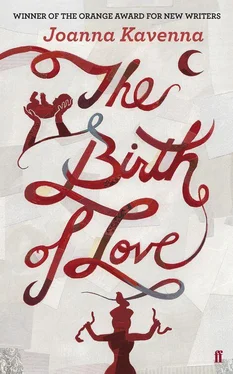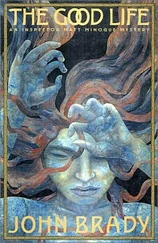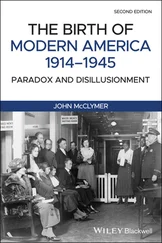*
Their polite silence made things worse, kept surging into the cracks in his sentences.
‘I wanted to ask why some people are raised … aloft, and others cast down … into darkness,’ he said.
They nodded back at him.
*
He wanted to tell them that he couldn’t remember precisely what he had been thinking of at the time. That it was a long time ago, a few years, that he started thinking about this book. He could not quite remember what it was, the original spark, the kernel he had begun with. He had been interested, for a long time before he even began his book, in the history of medicine, and then he read about Ignaz Semmelweis, this man who had driven himself mad. He was gripped by the story of Semmelweis, that was sure enough. So he started writing about Semmelweis, perhaps he intended to write only about him, but then other strands emerged. The whole thing took months, then years. His narrator rattled on — he supposed it was himself, some aspect of himself — so he set this man rattling on, and the whole story became — or to him it seemed this way — a metaphor, for any system of belief. It might be Christianity or it might be evolution, or the idea that humours governed the body. While he was writing, it occurred to him that there had been a time when medicine was founded on entirely different principles, then accepted as persuasive — the beneficial properties of leeches, or the uses of phrenology. And people had been convinced of these ideas. And there had been a time when mainstream science assumed that continental drift was impossible, and Wegener was branded eccentric. History was littered with such characters, proposing theories that offended the norms of their profession, finding themselves ostracised. And he thought the same was true of religions, in the end, that each new religion set itself up against others that had gone before, that the history of mankind was littered with discarded gods and goddesses. Something about Semmelweis’s frantic talk of mothers, his obsessive devotions, made him think of all the crones and goddesses who had been worshipped for thousands of years and then shoved aside. Artemis, Isis, Ishtar, Ashtoreth, Brigid, Cybele: their temples burned, left in ruins, their powers spent. And there was something else he didn’t even manage to formulate entirely, something which lurked beneath, but he wrote because it was a habit and he couldn’t stop himself, and he wanted to be published because he was vain — perhaps that was it, he simply wanted to be able to look at his published books, feel the glossy covers. He wanted to tell them all — Arthur Grey and Alice Mortimer and Roger Annais — that he only meant — his narrator only meant — that much had been forgotten, much remained obscure and perhaps unknowable. That it was madness to presume to know. Even to speak — to write — was perhaps madness, and he hardly expected anyone to agree with anything he wrote. Even as he drove words onto the page, he assumed his opinions were his own small maniacal perceptions, and he didn’t think they would necessarily chime with anyone else’s. Because of this, he felt quite alone.
*
He wrote his novel, and sent it to his agent, Sally Blanchefleur, who was impatient with him at the time and thought he would never do well. She had been his agent for years and it was clear her patience was wearing thin. The previous novel he sent her, she had not liked at all. She had taken months to respond, and finally she wrote, ‘Michael, I am sorry, but frankly I am not convinced.’ Nothing more than that, a terse note, after all his years of writing and the months she had taken to reply. He wanted never to speak to her again, after that, but she was the only agent who had ever replied to him, and he knew no others. So instead he badgered her on the phone, begged her for answers. ‘You are an intelligent man but you have to decide what you want,’ she told him, a trace of boredom in her voice. ‘Either accept your circumstances, or try to write something more … palatable to the general reader.’
*
Palatable, he had thought, sitting in his little room, in his flat in South London. To become palatable. That was the challenge she had set him. At fifty-five, to live in a small flat in South London pursuing unwanted projects; it was foolish to resist. But he found he was intractable, he couldn’t do it. He didn’t want to masquerade as someone else, and anyway he lacked the necessary daring. He simply couldn’t do it. ‘It wouldn’t hurt if you became a little more digestible’ — that was another phrase Sally used. The public appetite, the general palate, had no taste for him. Sally had been loyal, but now her loyalty was laced with fatigue and perhaps an element of pity. Poor old Michael Stone, better ring him. ‘Never mind, sometimes you can create your own audience,’ she would say. ‘Perhaps you’ll be the exception.’ But he felt she didn’t really believe it.
*
He had been writing for himself, that was the thing. He had been alone in a silent room and he had forgotten there was any chance of being overheard. Like being schizophrenic. You spoke to yourself and then you answered. You did not need to clarify your words; you were content with suggestions, half-fashioned thoughts. And then someone else invaded your cosy talk, this conversation you were having with yourself. Someone eavesdropped, heard half of what you were saying, or even less perhaps, and then they began to talk over you. They said, ‘So this is what you mean.’ Not even ‘what I think you mean’. Simply ‘this is’. First one, then a group of them, saying loudly and firmly, ‘This is the meaning of your rambling indecisive prose. We will explain.’ They got more loquacious. They talked and then they condemned you.
*
With The Moon everything had been different. ‘Well, Michael,’ Sally said. ‘Perhaps we might finally find you a publisher.’ He wanted to sob with relief. ‘There are many problems,’ she added. He listened, gripping the phone. ‘Men are unlikely to read a book about childbirth. It’s unfortunate, but there’s not much to be done. Women might just, but they’ll get put off by your obscure doctor. And the title too — the title is rather awkward.’ But he didn’t want to change the title. ‘It sounds like a dreary symbolist novel,’ said Sally. ‘And this rambling narrator, who seems mad himself. It’s as if you want to talk about everything, in one book. You can’t talk about everything in one book. It’s boring and it bores the reader.’
*
But he did want to talk about everything, the universe as he found it, not that he was much of an interpreter. He wanted to cry out how beautiful he found it, but how he was mired in darkness and knew nothing at all. Perhaps he wanted to find a way to express his ignorance. Sally explained to him — rather sternly — that he should take her advice, she was trying her best — she had been ringing around everyone she could think of, and finally — she could hardly believe it herself — she had found him a publisher. That sent him into nervous joy for a few days, and then they backed out. The editor was sorry. ‘Terribly sorry. Not my decision,’ he wrote. On second thoughts, they had decided it was not right for their list. They had thought carefully — ‘agonised long and hard’, wrote the editor — and they simply didn’t want the book. ‘They don’t think it’s worth it,’ said Sally, and now she lined up beside him. She phoned him regularly to give him progress reports. Finally she found Peter Kennedy who told him he loved the book and paid him almost nothing, but no one else would consider it at all, and so — Sally explained — he really had no choice.
Sally was brisk and unsentimental. ‘It’s a good novel, I’m not saying it isn’t a good novel, but it will be tough to find it a large readership,’ she said to him on the phone. ‘I’ve been talking to Peter, we were discussing the vogue for historical dramas, perhaps there’s something in that — but still, there’s only so far they can go.’ Michael tried to explain — once again he tried, though of course he was never persuasive — that wasn’t the point, but she was already talking over him. ‘Look, you have to relax a bit,’ she said. ‘I’ll get some friends to throw a launch party for you. And we’ll have a nice lunch on the day. Then you just have to hope the reviews are kind.’ And now she had them, hidden in her bag. She would not show them to him, she did not want to spoil their nice lunch.
Читать дальше












